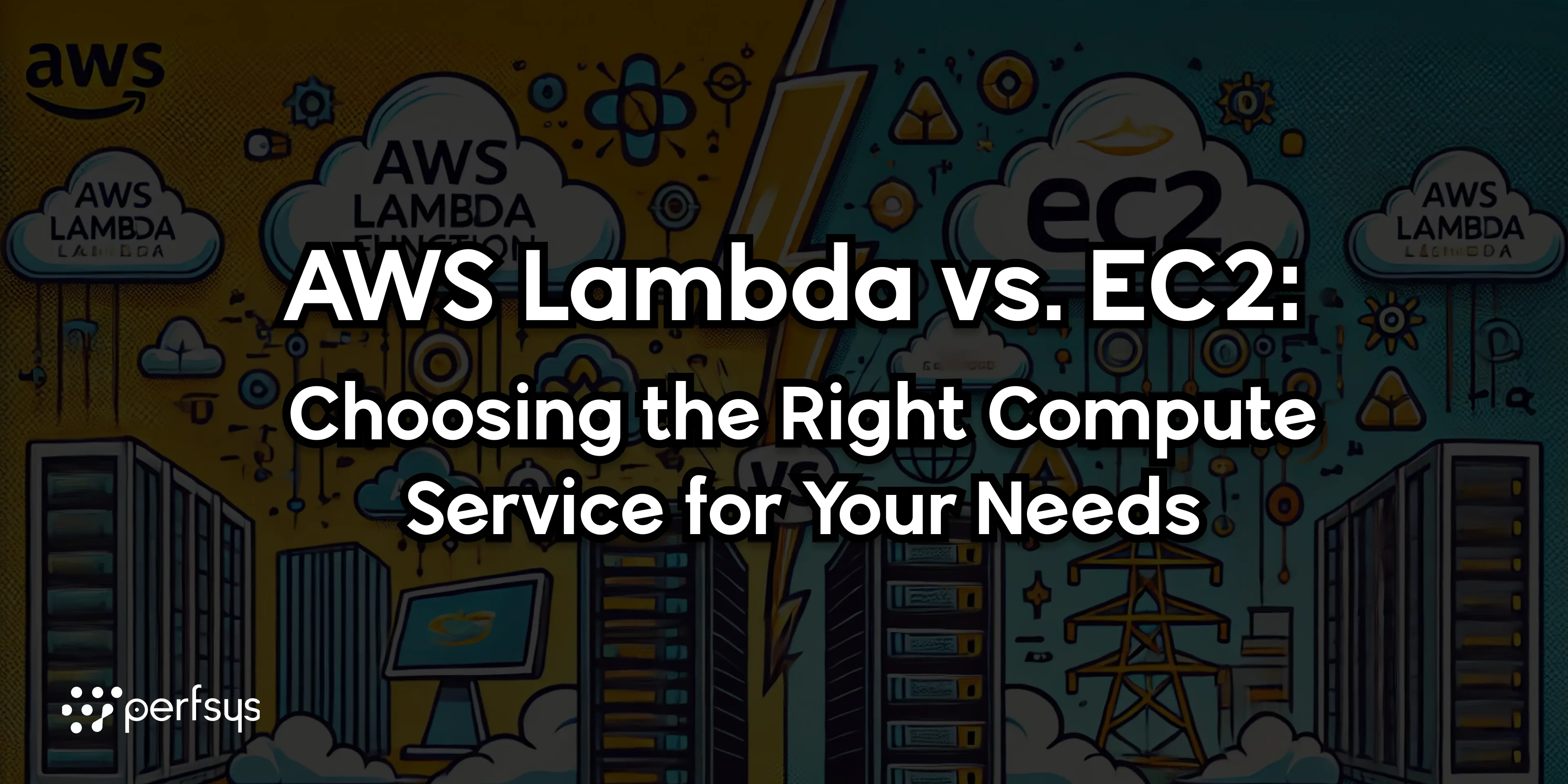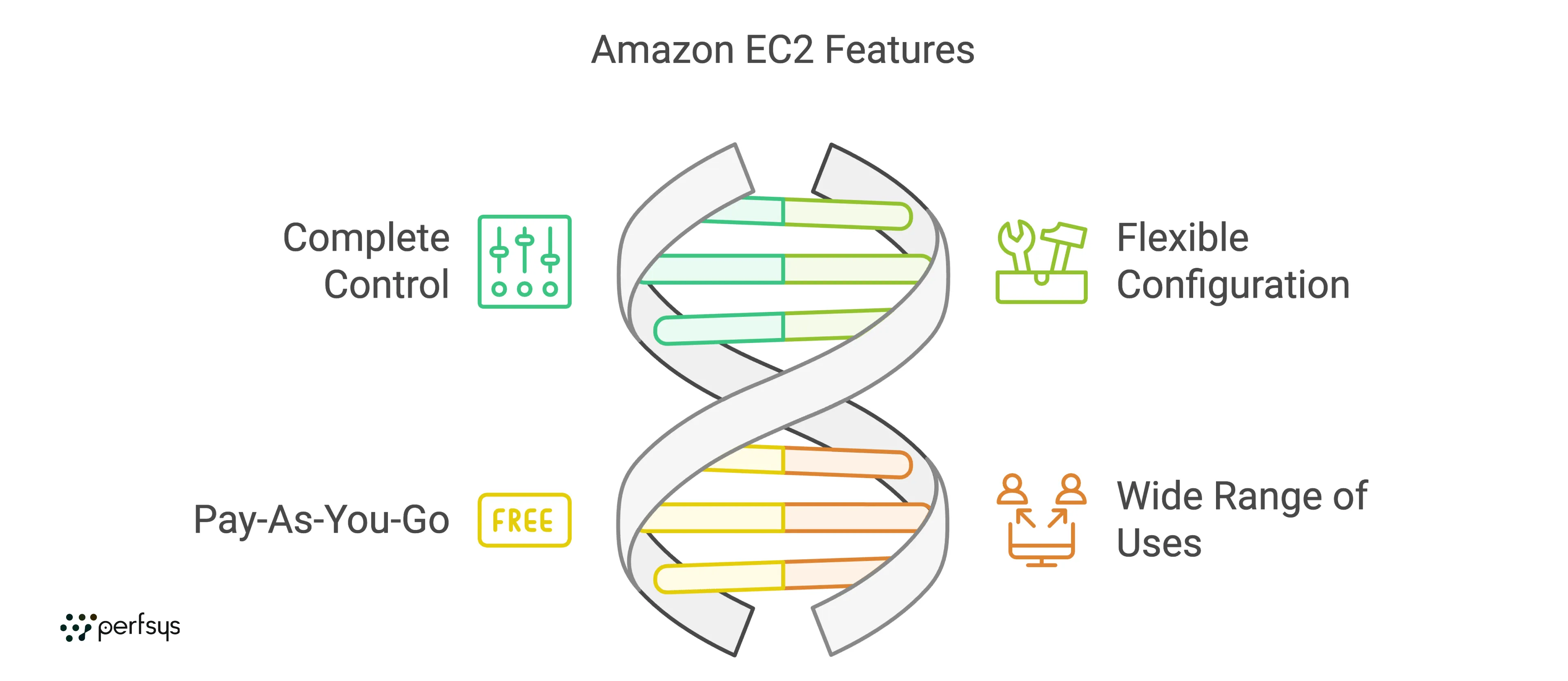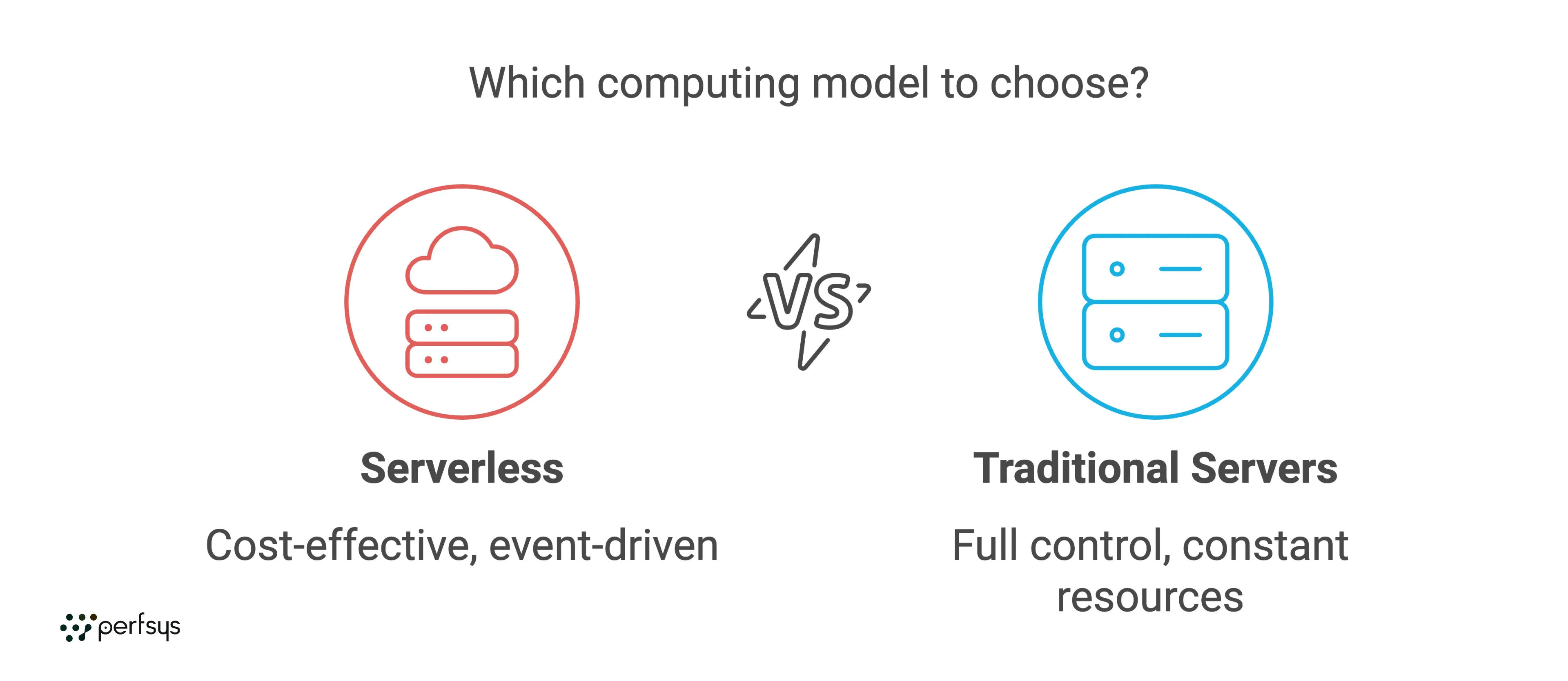AWS Lambda vs. EC2: Choosing the Right Compute Service for Your Needs

When using Amazon Web Services (AWS), you have multiple options for running applications and processing data, with AWS Lambda and Amazon EC2 (Elastic Compute Cloud) being two of the most popular compute services.
While both can power applications and handle processing tasks, they work in very different ways. In this guide, we’ll break down the differences between AWS Lambda and EC2, helping you decide which one is the right choice for your needs.
What is AWS Lambda?
AWS Lambda is a serverless compute service that allows you to run code in response to events without provisioning or managing servers. With Lambda, you write your code, set a trigger (like an HTTP request or file upload), and AWS handles the infrastructure, automatically scaling resources based on demand.
Key Features of AWS Lambda:
-
— Event-Driven Execution: Lambda runs code in response to specific events or triggers.
-
— Automatic Scaling: Lambda automatically scales resources to meet demand, even for large spikes in traffic.
-
— Pay Only for Execution: You’re billed based on the number of requests and compute time, so you only pay for what you use.
-
— Supports Multiple Languages: Lambda supports popular languages like Python, JavaScript (Node.js), Java, and Go.
Common Use Cases:
-
— Running backend code for web applications
-
— Processing real-time data or handling file uploads
-
— Automating tasks and workflows (e.g., processing log data, sending notifications)
What is Amazon EC2?
Amazon EC2 (Elastic Compute Cloud) provides virtual servers in the cloud that you can configure, manage, and control entirely. With EC2, you have full control over the operating system, network, and security settings, allowing you to install software and run applications as you would on a physical server.
Key Features of Amazon EC2:
-
— Complete Control: You manage everything from operating system to application settings.
-
— Flexible Configuration: Choose from different instance types, sizes, and configurations based on workload needs.
-
— Pay-As-You-Go: EC2 offers multiple pricing models, including on-demand, reserved, and spot instances, for flexibility.
-
— Wide Range of Uses: Run web servers, databases, machine learning models, and more on EC2 instances.

Common Use Cases:
-
— Hosting web servers and databases
-
— Running enterprise applications
-
— Developing and testing applications in isolated environments
-
— Running long-running background tasks or batch processing
AWS Lambda vs. EC2: Key Differences
| Feature | AWS Lambda | Amazon EC2 |
|---|---|---|
| ---------- | ||
| Compute Model | Serverless (no servers to manage) | Managed virtual servers |
| ---------- | ||
| Billing | Pay-per-request and compute time | Pay for instance time (on-demand, reserved, or spot) |
| ---------- | ||
| Scaling | Automatic scaling per request | Manual or automatic scaling options |
| ---------- | ||
| Control and Flexibility | Limited (no server access) | Full control over OS and configurations |
| ---------- | ||
| Ideal Workloads | Event-driven, short-running tasks | Long-running applications and custom setups |
| ---------- | ||
| Startup Latency | Cold start delay (seconds) | Instant availability once instance is running |
Key Considerations for Choosing Between Lambda and EC2

1. Cost
-
— AWS Lambda: Lambda pricing is based on the number of requests and the duration of compute time (in GB-seconds), making it cost-effective for workloads with variable demand or short tasks. It’s ideal if you want to minimize costs for infrequent or event-driven workloads.
-
— Amazon EC2: EC2 pricing depends on the instance type and usage model. For long-running applications or high-demand services, EC2’s reserved or spot instances can offer significant cost savings. EC2 also has fixed costs, even when resources are underutilized.
2. Control and Customization
-
— AWS Lambda: With Lambda, you don’t have access to the underlying server, and configurations are limited to code, memory, and runtime settings. This simplicity is beneficial if you want to focus solely on code, but it restricts your ability to customize the environment.
-
— Amazon EC2: EC2 gives you full control over the operating system, software, and server configurations. This is ideal for applications that require specific OS-level configurations or custom software installations.
3. Scaling and Performance
-
— AWS Lambda: Lambda automatically scales to handle large volumes of requests by running multiple instances in parallel, but it may experience “cold starts” where it takes a few seconds to initiate new instances after inactivity.
-
— Amazon EC2: EC2 offers both manual and automatic scaling through EC2 Auto Scaling. Once instances are running, they’re always “warm” (no cold start delay), providing consistent performance.
4. Event-Driven vs. Continuous Workloads
-
— AWS Lambda: Best suited for event-driven applications, where code runs in response to triggers. Examples include processing real-time data, responding to HTTP requests, and performing on-demand processing tasks.
-
— Amazon EC2: Best for continuous or long-running applications that need to stay active for extended periods, like running web servers, databases, or applications that process large datasets.
When to Use AWS Lambda
AWS Lambda is a good choice if:
-
— You have infrequent or short-lived tasks that are triggered by specific events.
-
— You want to run code without managing or provisioning servers.
-
— You’re looking to reduce costs with a pay-per-use model.
-
— You need to handle variable traffic patterns or have workloads with high spikes in demand.
When to Use Amazon EC2
Amazon EC2 is a better choice if:
-
— You need full control over the environment (e.g., custom OS settings or software).
-
— Your application requires consistent, long-running compute power (e.g., hosting a website).
-
— You want to leverage spot instances or reserved instances to optimize costs.
-
— You’re running workloads that require specialized hardware configurations, like GPU or high-memory instances for machine learning and big data processing.
Frequently Asked Questions (FAQ)
1. Can I use Lambda and EC2 together?
Yes, many applications combine Lambda and EC2. For instance, you could use EC2 for long-running services and Lambda for event-driven tasks, like image processing or on-demand API responses.
2. Is AWS Lambda cheaper than EC2?
It depends on the workload. Lambda can be cost-effective for short, infrequent tasks, while EC2 offers better value for long-running, high-demand applications, especially with reserved or spot instances.
3. Can Lambda handle high traffic?
Yes, Lambda automatically scales based on request volume, making it suitable for applications with high or fluctuating traffic.
4. Does Lambda support custom software installations?
No, Lambda does not allow access to the underlying operating system. For custom software, you’d need EC2 or another compute service like AWS Fargate.
Conclusion
Both AWS Lambda and Amazon EC2 offer powerful compute capabilities, but they cater to different use cases. AWS Lambda is ideal for short, event-driven tasks and provides a serverless, scalable environment with minimal management overhead. Amazon EC2, on the other hand, offers full control and customization for applications that need consistent performance, long-running processes, or specialized configurations.
Choosing between Lambda and EC2 depends on your specific needs. By considering factors like cost, scalability, and control, you can select the best compute service to power your applications on AWS.
